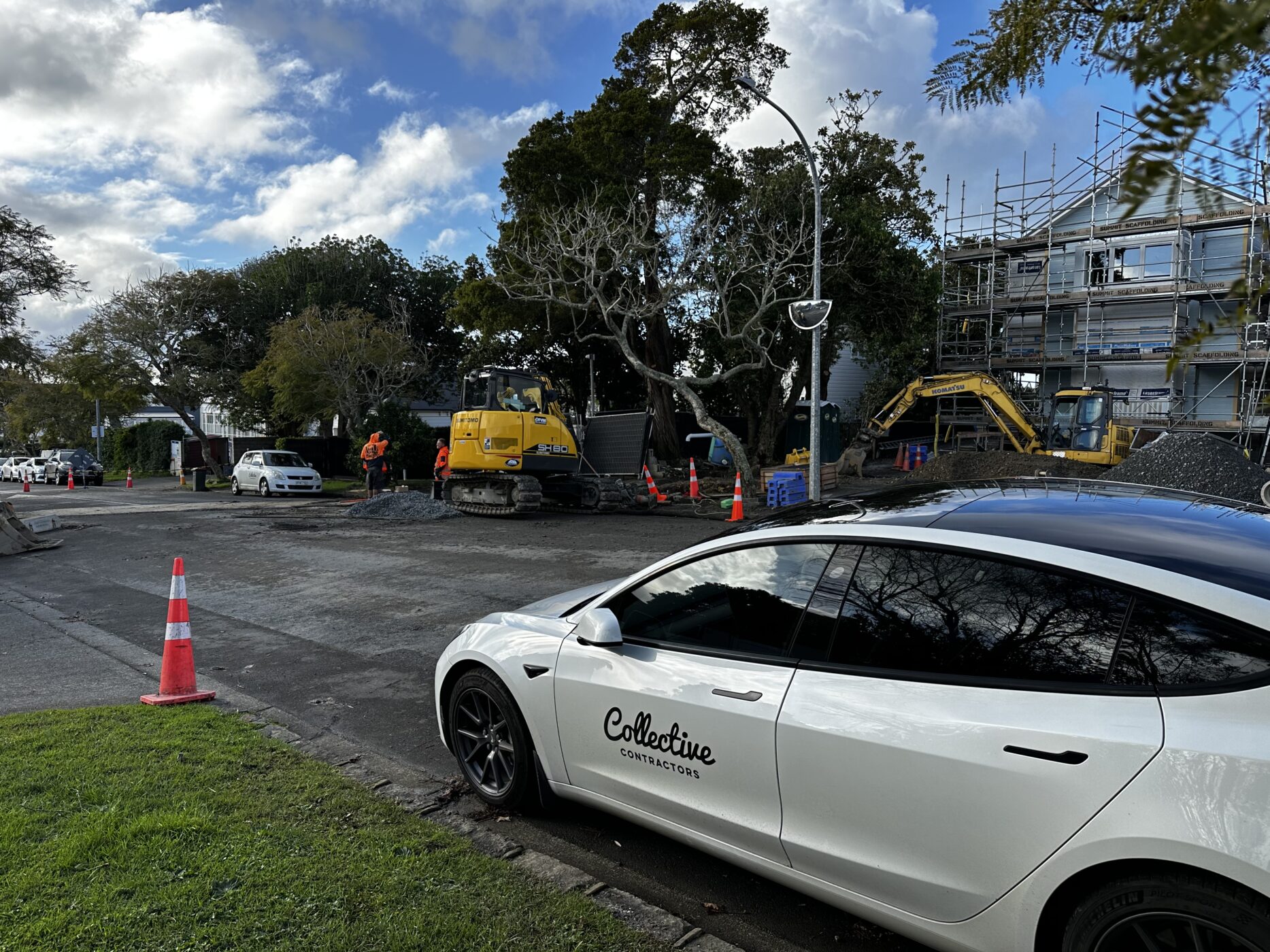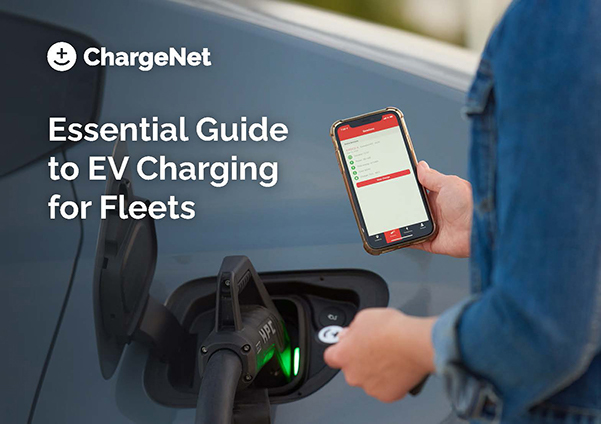
Are you curious about how New Zealand businesses are taking the leap towards an electric future? Our brand new series, Businesses Driving Change, is here to answer all your questions! From challenges to triumphs, we delve into the process, aiming to empower and educate businesses considering a similar shift. If you’re considering the switch, these stories will provide you with valuable insights and inspiration.
Innovating onsite
We recently connected with Keegan Webster, the Commercial Manager of Collective Contractors, to explore their path from the initial decision-making phase to overcoming logistical challenges and seizing the opportunities that arise with going electric.

Driving Towards Sustainability
Despite operating in a traditionally fuel-driven industry, Collective Contractors boldly switched out two of its internal combustion engine (ICE) cars to Tesla Model 3s. Over the last 12 months, the slick vehicles have freed up time and money for both directors and employees, as well as boosting productivity and brand image.
Pressure at the pump
It was this mounting pressure that inspired the leadership team to consider introducing EVs as a cost-cutting measure, particularly for office staff who aren’t required to carry tools or tow machinery.
“We have a lot of projects spread out across the city, which means the fuel cost to drive around each site was adding up to thousands every month,” says Collective Contractors’ commercial manger Keegan Webster. “The EVs are a fraction of the cost to run, saving us $12,000 per year, per vehicle.”
EVs have fewer moving parts and a simpler construction than traditional vehicles, which makes them much easier and cheaper to maintain.
“We have seen huge savings in both time and money for maintenance and servicing the EVs,” says Webster. “Traditional vehicles are quite disruptive every time they need to be serviced, and often mechanics don’t have a courtesy car for our employees to use, which has caused some logistical nightmares in the past.”
A positive mindset
The new Teslas are having a positive impact on employees, with staff reporting they are much more comfortable to drive than the manual utes they were previously navigating through Auckland’s busy roads.
The journey towards a more sustainable future has already started to reshape Collective Contractors’ brand image. While it’s early days to assess the full impact, the company is optimistic the change will establish them as a trailblazer in embracing green technology.
EV Charging logistics
Installing chargers at the office and setting employees up with the ChargeNet app have been two of the most important factors contributing to a seamless charging experience for Collective Contractors staff.
“We mostly charge at the office – we had a charger installed when we bought the EVs. However, we also have our employees set up with the ChargeNet app linked to our bank card so they can charge whenever needed,” says Webster.
A more sustainable future
Acknowledging the construction industry’s heavy reliance on diesel powered machines and trucks, Webster is proud of his employer’s proactiveness in taking the first step away from a reliance on fossil fuels.
“It has been a positive change and opened our thinking up to changing to an electric or other alternative-powered excavator, once the technology develops further,” he says. “At present, our main sustainability goals focus on recycling materials like concrete and asphalt for re-use on our projects.”
Collective Contractors’ journey highlights the power of innovative thinking in steering Kiwi businesses towards a greener tomorrow. The wheels of change are well and truly in motion, even in more traditional industries like construction.
